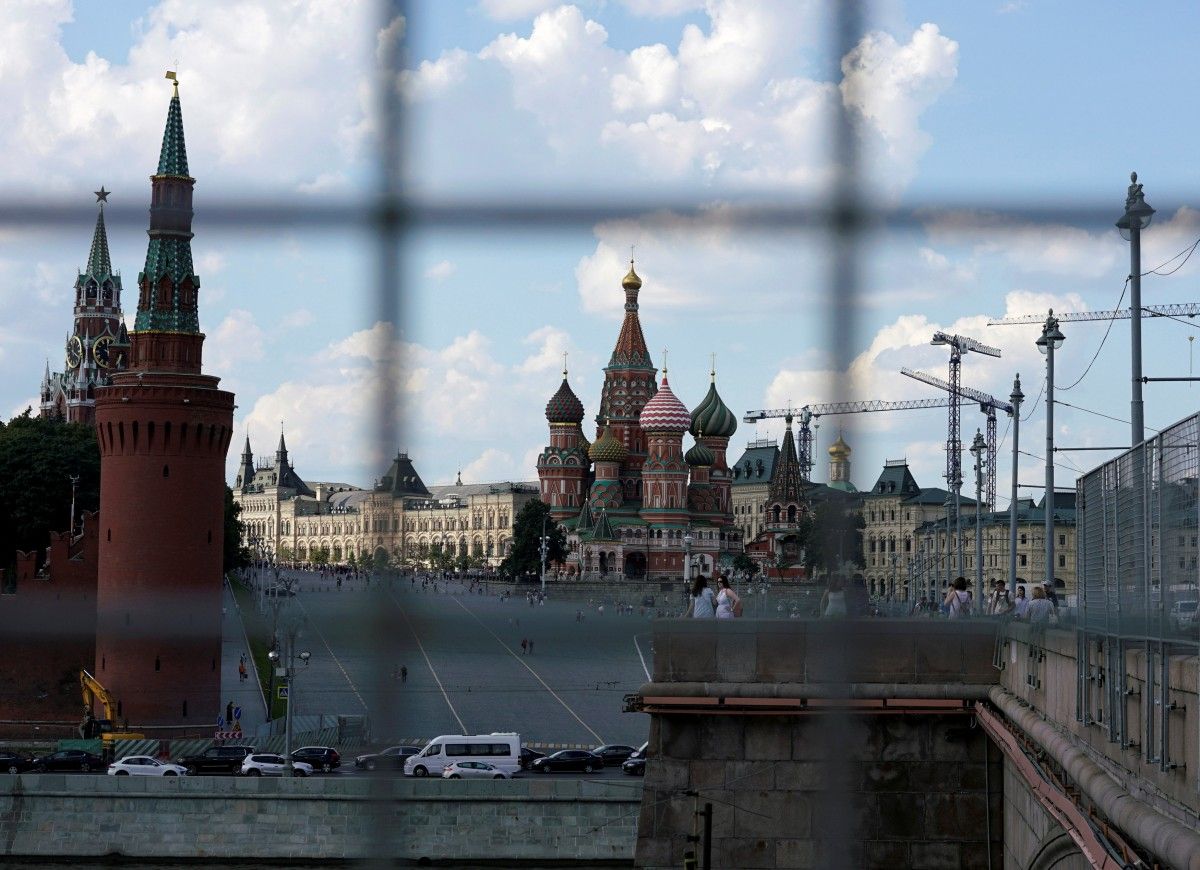
The Foreign Intelligence Service of Ukraine (SZRU) has released a report on the features of Russia’s approaches to affecting the course and results of Ukraine elections.
Russia’s main action plan on Ukraine in the short and medium term envisages further provoking extensive destabilization to facilitate the revenge of pro-Russian forces following the 2019 election, the Information Resistance OSINT Group wrote citing the SZRU report published on its website Wednesday, March 27.
This will include systemic and versatile measures for influencing the course of the election process and the vote count during the presidential and parliamentary elections, the report says.
In this context, the main areas where Russia is most likely to intensify its efforts is destabilization, including on the contact line in Donetsk and Luhansk regions, incitement of military-political confrontation with elements of economic influence; propaganda campaigns in the Ukrainian media and using instruments for cyber interference; measures to provide electoral support to individual candidates; and discrediting the electoral process in the international media space and through Kremlin’s positions in international organizations, as well as Western political and expert circles.
The key to achieving the Kremlin’s goal of revenge of pro-Russian forces in Ukraine is to continue in the short term measures to destabilize the socio-political situation and sow chaos across the Ukrainian territory.
Read alsoKremlin’s plan to sow chaos in Ukraine
Russia expects to intensify its efforts in the implementation of propaganda campaigns in the Ukrainian media space, as well as ensuring the predominance of black PR to increase anti-rating of individual politicians.
In addition to the possibility of information spins through Russian-funded media, the Kremlin tactics foresee the use of mostly false flag so-called journalistic “network marketing” – distribution of paid-for material by media.
Russia will also intensify its efforts in social networks, including with the use of bots and trolls. The main efforts will be made through influencing the electoral preferences of target groups (by age, gender, geographical position, social status, etc.).
The Kremlin also seeks to exploit sensitivity of nationalist right-wing and left-wing radical groups to calls “to declare themselves by the use force”. The purpose of provoking these groups to “force response” is the spread of fear, panic, and loss of confidence.
Russia also plans to exploit false polls data during voting, which will be made public on the evening of March 31, to sow chaos and create grounds for the Kremlin to claim alleged illegitimacy of presidential elections.
A religious factor could be used through provocations during the celebration of the Palm Week (April 21-28) as Russia is set to organize a pilgrimage of Russian Orthodox believers to Kyiv shrines. At the same time, under the guise of pilgrims, they plan to deploy in Ukraine intelligence operatives and “Orthodox” fighters trained to take part in riots.
The possibility is being worked out of applying in the temporarily occupied Crimea illegal schemes for the purchase and export to mainland Ukraine of Ukrainian IDs issued before March 2014.
Russian analysts consider it expedient in the period until the end of March to adhere to the tactics of instigating confrontation between presidential candidates, which, according to their calculations, will help reduce the level of support by the international community.
The amassing of the strike grouping of the Russian Armed Forces along the Ukrainian-Russian border, conducting exercises and maneuvers, as well as the shelling of troops, is an element of military-political pressure on the Ukrainian leadership.
Special services of the Russian Federation are preparing a series of provocations directly at polling stations in the eastern regions of Ukraine, bordered by the territories temporarily occupied by Russia in Donetsk and Luhansk regions of Ukraine.
Among the options is, in particular, staging refusals to vote for internally displaced persons. Provocateurs are being trained to stage provocative situations at polling stations that will be covered in the media, aimed at creating an impression of falsification, an illusion of opacity of elections and their illegitimacy, in particular in terms of violations of the rights of IDPs.
Also, Russian special services have stepped up their work on the use of passport data of deceased persons or persons who went missing in the occupied territories of Donbas in 2014-2018, whose status is impossible to officially confirm or deny.
One of the main areas of Russian interference remains cyberspace, the intelligence agency stresses.
The scenario includes inserting malware and monitoring vulnerabilities in the critical infrastructure cyber defense system; provocations connected with unauthorized interference in computers of opposition political forces with the further “leaks”; and massive DDoS attacks on the servers of ministries and other government agencies aimed at distracting Ukraine’s cybersecurity forces and countering their efforts, and the use of pre-installed worms.
Also, Russia plans to launch on Election Day unprecedented cyberattacks on CEC servers and district election commissions to cast doubt on the legitimacy of the electoral process.
This is about infecting servers and computers of constituency administrations and polling stations with a “malware worms” capable of distorting statistics and simultaneously releasing across Ukraine large-scale exit polls and “parallel vote count” in the East and South of Ukraine, which will allegedly demonstrate deliberate understatement by the Central Election Commission of the number of votes cast for pro-Russian candidates.

